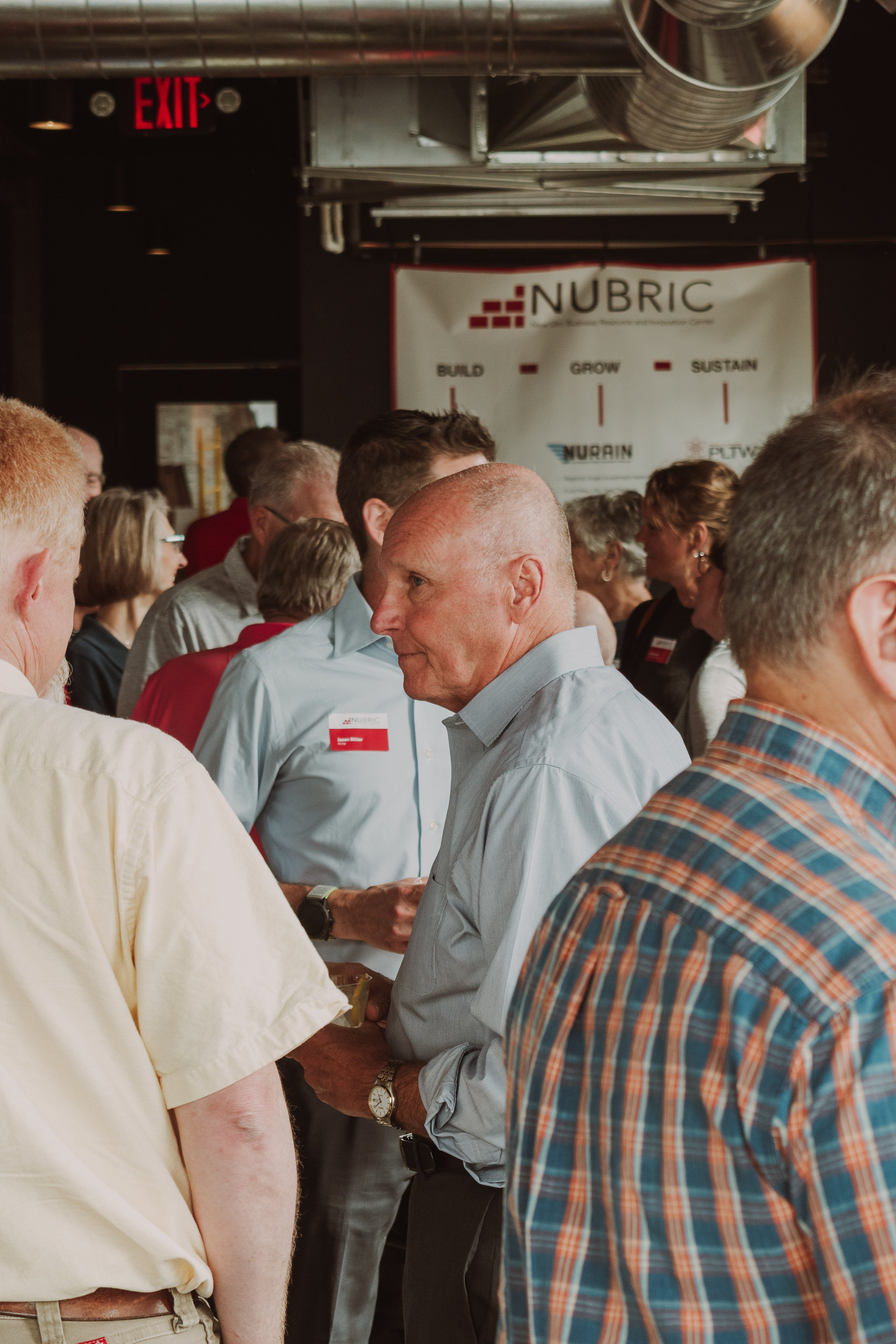
NUBRIC in the News
New Ulm Journal, June 13, 2023:
NUBRIC and CORI unveil Project SPARK
“Is there anything quite like the feeling of going somewhere for the first time?
Whenever you go to a new community, especially in rural America, you’re bound to meet interesting people, discover fascinating monuments and cultural institutions, and find unique downtowns that are full of history and character. That was certainly the case for me a couple weeks ago when I traveled to New Ulm, Minnesota, 90 miles southwest of the Twin Cities.
I was joining two members of our Rural Innovation Initiative team for their in-person strategy workshops. As part of the engagement, the local leadership organized a community kick-off event with more than 100 attendees — local stakeholders, leadership from major manufacturers and statewide innovation hubs, entrepreneurs, state and federal funding representatives — excited to talk about the future economy of the city.
It’s always a thrill to see our team in action, in this case Rachel Barra and Lizette Lewis leading a session with local ecosystem builders and their partners, and it also gave me a chance to better understand the contrasts of New Ulm, a city of 14,000 whose strong sense of identity would suggest a population far larger. It’s a place with world-class, 21st-century broadband infrastructure and the second-oldest independent brewery in the U.S., a longtime 3M manufacturing facility and a hub for the Lutheran faith and its educators, as well as a 102-foot tall monument to the area’s deep German heritage. I’d never been to any place quite like it.
Yet, at the same time, I could identify common threads with other rural places we know.
One of the local champions of New Ulm’s work with us, Paul Wessel, grew up in the area, left to pursue a career in automation and bio tech that took him around the globe, and came back later in life. He wants to make a difference in his community and has led a relentless drumbeat for building the tech economy through an initiative his organization has called Project Spark.
The case Paul made at the forum was powerful. He used his experience in the manufacturing automation and agriculture science industry, something familiar to those in the audience, to speak to why New Ulm needed to invest now in building software companies and tech talent. While I also spoke about the opportunities a tech economy provides rural communities, he made the case that resonated in a way I never could, placing in plain view how this was the moment for New Ulm to get ahead of the curve in the new economy — just like the city’s innovative business leadership did nearly a century ago to make sure the community could provide manufacturing opportunities for the next generation. As we’ve learned in our work and our travels across the country, people like Paul are crucial to making progress and building partnerships to sustain this challenging work.
But as I checked my Slack messages on the flight home, I was seeing the impact we are having as we scale our organization. While I was in New Ulm with Rachel and Lizette, we had other members of our team working with groups in Nebraska, North Carolina, and Mississippi, each posting inspiring stories of innovation and collaboration in these beautiful rural communities. Our teams are feeling incredibly inspired to be back on the road getting to know rural America and meeting progressive rural leaders who wake up every day trying to make the communities they love even better for the next generation. And it turns out showing up matters. During the first half of 2023, our staff has made in-person visits to nearly 30 communities — and some of those on more than once.
This work can be demanding of our staff, but it is integral to our ability to connect the dots between places across our Rural Innovation Network. It’s part of what allows us to identify which communities are ready for new funding opportunities like the EDA’s new Build to Scale Ignite Challenge, announced earlier this month, which offers a lower barrier to entry for communities to start their tech-based economic development work, and the Tech Hubs program, now featuring a lower matching funding threshold if resources are going directly to rural places. These are meaningful changes that we’ve advocated for based on what we’ve learned from rural communities and inspired by the change agents working hard in the places they love.
And to a person, everyone at CORI working with these communities comes home tired but more energized than ever having seen firsthand what is possible in rural America.”
Matt Dunne, CORI Founder and Executive Director
Project Lead the Way STEM Planning Workshop
On September 20th, 21 teachers began the process of selecting the PLTW curriculum for the next school year. All New Ulm schools are now engaged! We are so thankful for their engagement and participation!

View photos and videos from our past events:
NUBRIC Mixer at Black Frost Distilling (6/21/2022)
New Ulm: a ‘Project Lead the Way’ Community (6/22/2022)
Paul Wessel on KNUJ (6/13/2022)
Listen to Paul Wessel talk about ‘Project Lead the Way’ on local radio station KNUJ.


